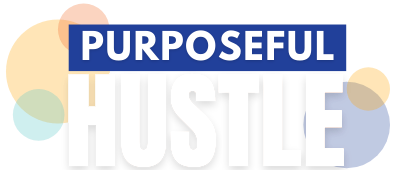The holidays are fast approaching. Radio stations are starting to play festive music, people are in the throes of holiday shopping, and you have family coming over in a week. You likely already have a lot on your mind (and your plate!) at work, but with the incoming annual holiday bustle it can be even harder to focus on your project deadlines and daily tasks.
Below are five easy tips to help redirect your focus on your work, even with “Last Christmas” playing on your coworker’s desk speakers and your out-of-town sister texting nonstop about her plans to fly in for the holidays.
Make Reasonable To-Do ListsIt’s always good practice to keep track of what you need to do, but make sure you do so wisely. Keep track of both your big-ticket items and your minor tasks, while setting boundaries on what you can accomplish in a reasonable timeframe. This will create a balance between thumb-twiddling “what-to-do-now” boredom and overwhelmed burnout.
Be aware of the “planning fallacy.” Too often, we fall into the trap of miscalculating how long it will take to get things done. Being realistic about what you can actually accomplish in a specific timeframe can help you focus. If your to-do list is longer than a CVS receipt and begins to feel overwhelming, it can be easy to sidetrack to other things...like social media. Your brain begins to say, “What’s the point in starting this report if there are only two hours left in the workday?”
Be realistic about what you can accomplish.
Create a Focused EnvironmentThere are a lot of things you can do to improve your productivity just by adjusting your workspace. Consider taking a moment to declutter your desk area. Research shows that the benefits of a clean work environment includes reduced stress, improved mental clarity, more efficient time utilization, and even better physical health. Organize your computer files, consider a more ergonomic setup, dust your area down, and have a good spot for everything you have.
Various apps are also available that can help track to-do lists, set timers, store notes, and communicate better with coworkers.
Remove Distractions
Your favorite Spotify playlist may be fun to rock out to on your commute to work, but it might become nothing more than distracting background noise at work. Or maybe Liz from accounting tends to swing by your desk and gets you talking a little too long. Whatever the case, we all have distractions to address.
Be honest with yourself. It’s normal for our minds to wander away from our Excel spreadsheets once in a while. Sometimes, however, we need to address the real time-stealers in our environment.
Some things may be out of your control, like the water cooler making that weird bubbling noise or a group chat on Slack that won’t stop dinging. Take care of your work environment, politely talk to your coworkers about giving you more space, and exercise a little self-control.
Set Time to Focus
Sometimes, we’re faced with things we just don’t want to do. We may also have moments where we don’t want to work in general.
Setting a time block to purposely take care of something can help. Maybe you have mountains of data entry work to do and are dreading getting started. To kick-start your motivation, tell yourself you can tackle it for just thirty minutes. Or, if you’re struggling to get back into “work mode,” set a ten-minute timer and work on something (anything!) until you get back into your groove.
One of the most popular time focus techniques is the Pomodoro technique. Invented by Francesco Cirillo in the 1980s, the idea is to set a timer for 25 minutes dedicated towards pure focus. After 25 minutes, take a 5-minute break. Once you complete four 25-minute on, 5-minute off cycles, or “pomodoros,” take a longer, 20-minute break. The idea is simply to structure your time to include reasonable work intervals and break times.
Setting intentional focus time is useful for promoting concentration and preventing multitasking. Experiment with timers until you find a system that works for you.
Take Breaks
The traditional work day may be 8 hours long, but our brains tire out well before that. In fact, according to behavioral neuroscientist and Northwestern University Assistant Professor of Neurology, Borna Bonakdarpour, the brain needs “20 to 30 minutes to break” after about two hours of work. According to Bonakdarpour, the brain “comes with byproducts that need to be cleared out and cleaned” when increasing its metabolism. Think of the brain as a dryer, and a break as a way to clean out the lint trap. It’s why breaks are a key element in the above-mentioned Pomodoro technique.
If your workspace is clutter-free, everything is organized, and you know exactly what’s on task for you, and you’re still struggling to focus, it may be wise to step away from your desk. You can’t work with an exhausted brain. Take a break, and come back to your work with a refreshed mind.
--
It’s easy to lose track of ourselves when things at work get hectic, especially as the holidays roll around. However, it is possible to regain focus with a little discipline, self-awareness, and time management.
Remember to keep track of what you have to do, but also be aware of your actual work habits and surrounding environment. Allow things to work in your favor. You don’t have to struggle to retain focus at work like it’s a fish you have to wrangle. Keep your control, use some focus techniques, and you can get anything done.








Leave a Comment